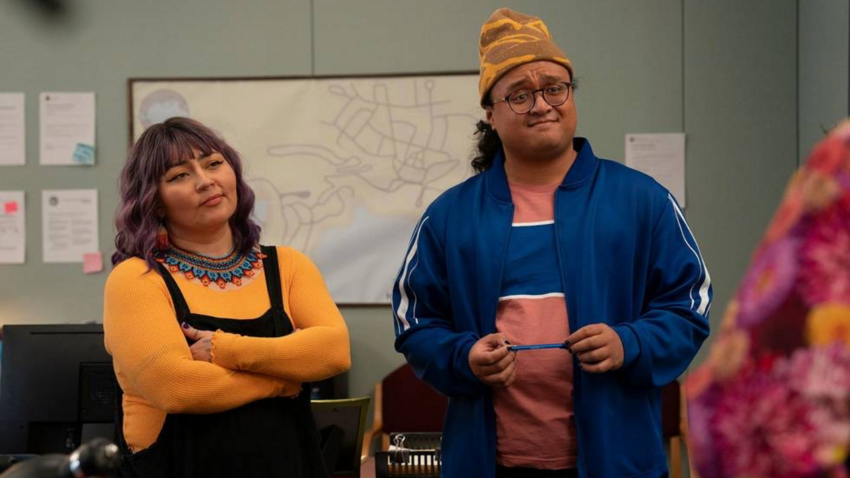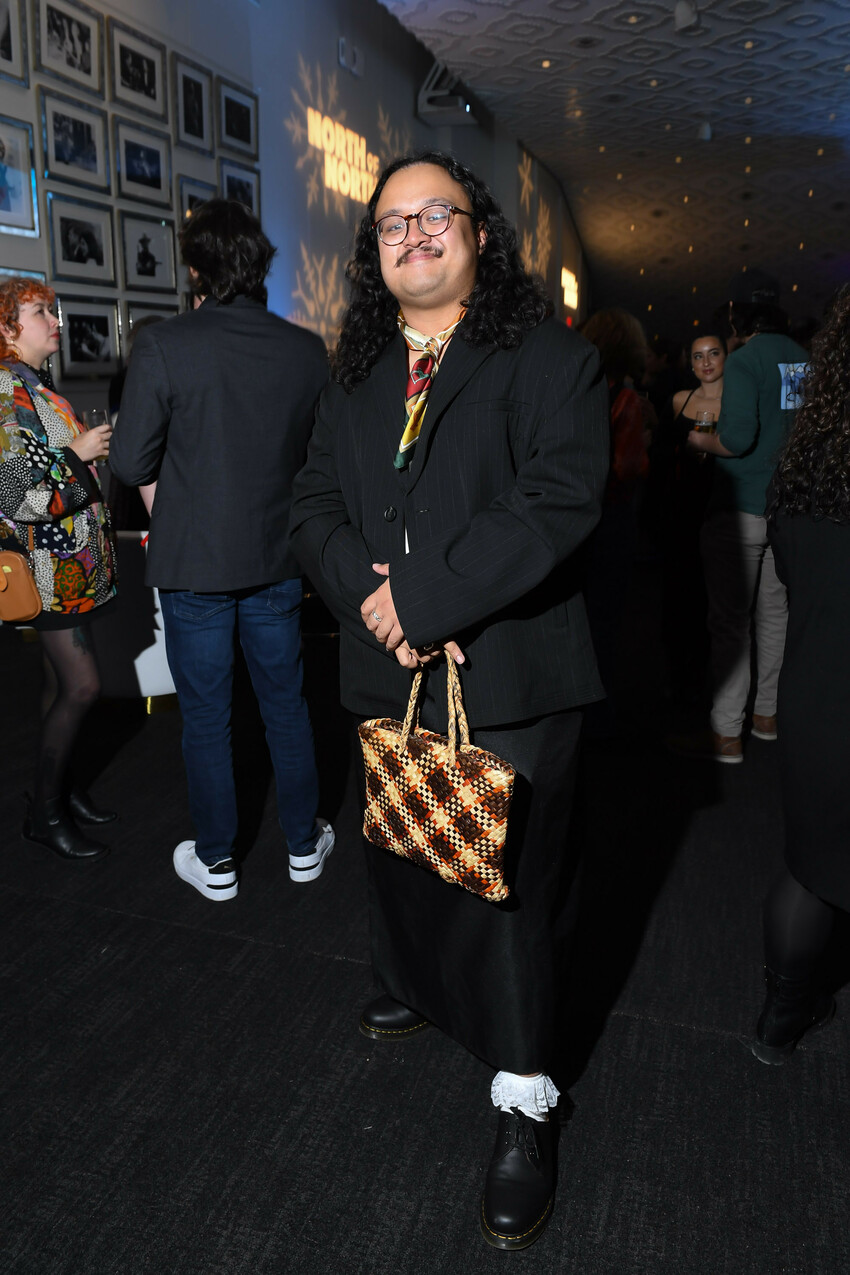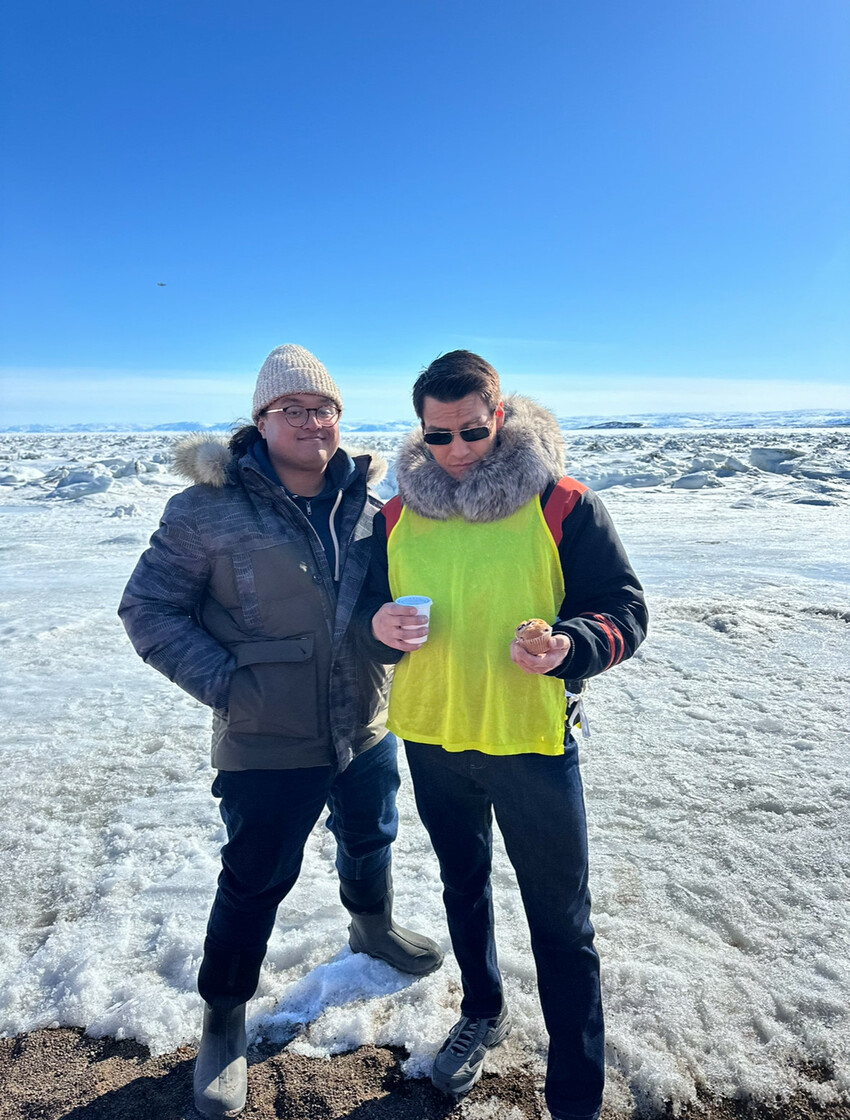Samoan Māori Actor Bailey Poching lands role in Netflix Series - North of North

Bailey Poching, a young Samoan and Māori actor, is making waves in the entertainment industry with his role in the groundbreaking Netflix series North of North.
The show, set in the Canadian Arctic, offers a fresh perspective on indigenous storytelling, and Poching’s involvement is a celebration of the importance of representation and the power of diverse voices in film and television.
Poching's journey to landing the role in North of North was swift and unexpected, a whirlwind that saw him auditioning on Monday and flying out to Canada by Friday.
"It came up like any other role—I got an email about an audition and I sent in a tape," he recalls. "The unusual thing about the process was actually how quickly it all came together—I auditioned on a Monday and by Friday I was on a plane to Canada, en route to Nunavut, which is a territory in the Canadian Arctic."
The rapid turn of events was life-changing for Poching, who soon found himself living out his dream in the remote and breathtakingly beautiful landscapes of Nunavut. "It was the biggest and most intense shoot I’d ever been on," he says. "The main thing for me was getting to visit such a beautiful part of the world, and to learn so much of the rich history of Nunavut."
Poching plays Colin, a communications officer in the small Arctic town of Ice Cove. His character is one of the few male indigenous characters portrayed with tenderness, humour, and kindness, a rarity in both indigenous and Pasifika representations on screen.
The role resonated with Poching because, as he notes, indigenous stories hold immense value. "Indigenous stories are so precious, and to be present for the telling of another community's stories feels like such a privilege," he reflects. "The thing I love about Colin is that there aren’t many male indigenous characters—and indeed Pasifika and Māori characters—like him in our films and TV shows. He’s soft, kind, and supportive but he’s also really funny."

What makes Poching’s portrayal even more special is the cultural context. Although his character is set within the Inuit community, Poching, who identifies as Samoan and Māori, emphasises the importance of being a good visitor and ally to the Inuit people.
"My main focus was on being a good visitor to someone else’s land, and being there to assist in the telling of someone else's stories," he explains. "Acting and creative work can get quite heady, but I think the main thing I wanted to do was execute the writers’ vision."
His deep respect for the sacredness of indigenous storytelling shines through in his approach to the role. "It’s such a deep honour to be part of this cast and to share in the success of all of our hard work—North of North is an Inuit show. It’s an Inuit story."

Beyond the cultural exchange, Poching also found striking similarities between his own indigenous heritage and Inuit culture, especially in the use of humour.
"Probably one of the biggest examples is the humour," he says, sharing a memorable moment on set. "There’s a scene in episode one where Siaja asks Colin for a ride home after something awful happens. I decided to start improvising, and at the end of the take, I offered, 'You got twenty bucks?' Stacey, one of the show's co-creators, told me they’d kept it in because it felt like 'such an Inuk joke.' Humour, especially in the face of something really dark and difficult, turned out to be a shared grounds for understanding."

For Poching, being part of North of North is not just a career milestone but also a significant step forward for indigenous representation on screen. “North of North is a massive achievement for indigenous representation,” he notes. "The industry in Nunavut is small, so the efforts taken to get this show made have been unbelievable. And that doesn’t happen without indigenous leadership, indigenous storytelling, and indigenous talent."
As a Polynesian actor, Poching has faced challenges in the industry, particularly in terms of the limited opportunities available to indigenous actors. "Scarcity" is the term he uses to describe the struggle to break into the industry.

"There’s wonderful stuff coming out of this country, but relative to the amount of people auditioning and trying to get on these projects, it’s hard to get your foot in the door," he says. "But I’ve dealt with that by doing heaps of different stuff. I studied writing and directing, I write on a lot of NZ TV comedies, I do stand up and improv. And all of these things, thankfully, feed into each other and help me become a better storyteller."
For young Pasifika actors hoping to break into film and TV, Poching’s advice is simple but profound: "Learn to write! Be bad for a little bit! Keep going and get better!" He emphasises the importance of perseverance, passion, and the pursuit of stories that reflect one's own values. "Know your values, and your perspective on the world—know what it is that you have to say with your work."

Poching’s work in North of North highlights the power of indigenous storytelling and the need for more authentic representation in the media. His journey reminds us of the importance of supporting and uplifting indigenous voices, not only for the sake of representation but for the richness they bring to the stories we tell.
Full Q&A with Bailey Poching
How did you land your role in North of North, and what was the experience like working on the show?
It came up like any other role- I got an email about an audition and I sent in a tape. The unusual thing about the process was actually how quickly it all came together- I auditioned on a Monday and by Friday I was on a plane to Canada, en route to Nunavut, which is a territory in the Canadian arctic. It kinda turned my entire world upside down in the space of four days, suddenly I was living in a hotel in the Canadian arctic for three months living my dream. The show was so much fun. It was the biggest and most intense shoot I’d ever been on. The main thing for me was getting to visit such a beautiful part of the world, and to learn so much of the rich history of Nunavut. It was kind of an overwhelming experience but I tried my best to stay present and appreciate the privilege of being there. I got to dogsled on the ice, I got to eat frozen caribou and whale blubber. And then in between all of that stuff I got to live out this lifelong dream of acting in a comedy TV show.
Can you tell us about your character and what drew you to the role?
Colin is a communications officer in this small arctic town called Ice Cove, which is the hometown of the shows protagonist, Siaja. Colin occupies a supporting role along with Millie (played by Zorga Qaunaq) as one of Siaja’s best friends. Like I mentioned, the whole thing came together really quickly but a few of the green flags for me immediately were that the show was created and produced by two indigenous women (Stacey Aglok-Macdonald and Alethea Arnaquq-Baril), it was a comedy drama, and I’d never seen anything like it before. Indigenous stories are so precious, and to be present for the telling of another communities stories feels like such a privilege.
The thing I love about Colin is that there aren’t many male indigenous characters- and indeed Pasifika and Māori characters- like him in our films and tv shows. He’s soft, kind, and supportive but he’s also really funny. He’s not mean-spirited, either. There’s something really gentle about him, and that’s not something I get many opportunities to play.
What was it like as a Samoan/Māori actor playing a supporting role in a show centered on Inuit culture?
It was so cool. Colin’s culture isn’t explicit in the first season of the show, but I knew- and the creators of the show knew- he was Samoan and Maori. But my main focus was on being a good visitor to someone else’s land, and being there to assist in the telling of someone elses stories. Acting and creative work can get quite heady- there’s lots of thinking and dreaming and having ideas- but I think the main thing I wanted to do was execute the writers’ vision, to recognise Colins place in this larger story and serve that.
Which was super fun and actually made the work feel so much easier and lighter. A big part of that is being indigenous- and recognising the importance and the sacredness of our stories, and also maybe a bit of island humility too. It’s such a deep honour to be part of this cast and to share in the success of all of our hard work- but North of North is an Inuit show. It’s an Inuit story. And the important thing to me was to convincingly play a pacific indigenous person who just happened to live in this community. In fact I think the further we got into the shoot- I was there for about three months- the closer I started to feel to Colin, who I saw as an indigenous person who had chosen to live in Nunavut and, because of his own whakapapa, had done his due diligence and done his homework on being a good settler.
Did you notice any similarities between Inuit culture and your own Samoan or Māori heritage?
I think there’s always overlap in indigenous cultures. I love bonding over concepts and ideas that we share, especially considering the distance. Probably one of the biggest examples is the humour though. There’s a scene in episode one, it’s in the trailer too, where Siaja asks Colin for a ride home after something awful happens.
I think we were a couple of weeks into shooting at this point and I decided to start improvising and riffing a little more. So at the end of the take I’m supposed just say “yeah” and after a little beat I offered “you got twenty bucks?”. I think because of my acting experience prior I kinda knew that the end of the take was the safest place for a riff- they’d still be able to use it and just trim it out. But later on in the shoot Stacey- one of the shows co-creators told me they’d kept it in because it felt like “such an Inuk joke”. And so humour, especially in the face of something really dark and difficult, turned out to be a shared grounds for understanding between us.
How does it feel to be part of a Netflix series, and what does that mean for not just Pasifika representation but indigenous representation on screen?
Gosh thats such a big question. I guess I can never really say what it means for the representation, but I know these things are only ever built one brick at a time. I know that even over the last ten/twenty years there’s been mahi put in by people who are now my contemporaries that lead us to having more of a presence on the world stage. All that stuff is very exciting and glossy to think about but the job I signed up to do is to tell stories.
My goal is to present honest, scary, weird, flawed, exciting characters who are from where we’re from. We’re a very talented and driven people but we’re also vast and varied. I definitely have a strong compass for the stories I personally wanna see from our people. And there’s huge power in recognising what you do and don’t want your face and name attached to. There’s certain types of adverts and characters that I generally refuse to even audition for- because I feel strongly about what I want to see, and more specifically about what I have to offer. It’s not lost on me how much of a privilege it is to be a part of something like this, but I worry that if I think too much about the wider implications then I’ll lose sight of the thing that started me doing this, which is the excitement, the danger, the heartbreak of watching a movie or tv show that makes you feel something. That has to be the number one goal.
I think more broadly speaking that North of North is a massive achievement for indigenous representation. The industry in Nunavut is small, so the efforts taken to get this show made have been unbelieveable. And that doesn’t happen without indigenous leadership, indigenous storytelling, and indigenous talent. When we talk about equity, we need to look at who has the opportunities to tell their stories. Relatively speaking, and this feels wild to say considering the landscape we’re in, New Zealand has a platform and a base level of funding for Māori and Pasifika programming. Not much- but there is a precedent for our people making film and TV. The TV studio in Nunavut hadn’t completed construction by the time we started shooting so production rented out the local ice rink and fitted it out as our TV studio. That’s such a huge leap. And with any luck we’ll be seeing more and more stories coming out of the community- with more and more Inuit in front of and behind the camera.
What challenges have you had faced as a Polynesian actor in the industry, and how have you overcome them?
Honestly scarcity. I’m very lucky to get work, I work as a writer and a comedian as well as an actor. But as someone who’s truly passionate about what I do, it feels like there’s only so few opportunities to make that impact. There’s wonderful stuff coming out of this country, but relative to the amount of people auditioning and trying to get on these projects, it’s hard to get your foot in the door. And that’s not even considering the ethics of who you want to work with, whether the work is regressive or not considered enough, and then there’s also the consideration of whether or not your work is being valued and paid for.
I look around and I see so many of my peers who have so many ideas and dreams and I don’t always have faith that we have the infrastructure to nurture those dreams. The way I’ve dealt with that is doing heaps of different stuff. I studied writing and directing, I write on a lot of NZ TV comedies, I do stand up and improv. And all of these things, thankfully, feed into each other and help me become a better storyteller.
What advice would you give to young Pasifika actors who want to break into film and TV?
Learn to write! Be bad for a little bit! Keep going and get better! No one ever really talks about the period of their work when they weren’t very good, but it’s so essential. Film school or drama school can be really good places to make all of your rough draft works, then you can go into the big wide world and try and get work. “Breaking into the industry” is so tough because it’s waiting for someone else’s permission.
The resilience to endure endless rejection can only come from being truly deeply passionate about telling stories. I think it helps to constantly challenging yourself- both with the work you make, but also with the work you consume. Be curious, and surround yourself with people who encourage that curiosity. Know your values, and your perspective on the world- know what it is that you have to say with your work. I think the “lifestyle” of an actor can be very appealing, but I think it helps to be a little bit weird and (healthily) obsessed. To watch work outside of your taste and to find things that resonate with you personally. Sorry that was rambly but I think the summary would be: write a lot, watch heaps, think deeply about the work.
